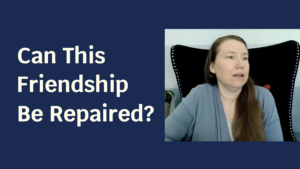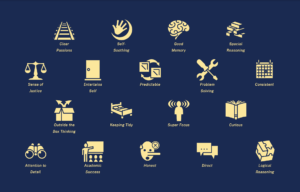Why common strategies for socializing don’t work
Have you tried (or been subjected to) social skills training? Did it actually help? (Or did it reinforce that you’re bad at this?)
What about medication? (Apart from the side effects?)
Anxiety management techniques? Therapy? Self-help books? Books on reading body language? Power poses? (Yeah, I saw that TED Talk, too.)
Probably some. But if you’re reading this, I’m guessing it wasn’t enough.
You’ve done so much personal growth work, but you still feel uncomfortable around people. Like you don’t belong. Like an outsider looking in.
Want to know why? There is a reason. Well, okay, two reasons.
Reason #1
None of these really “work,” because none of them address the root causes of what’s going on. Therapy comes the closest, but unless your therapist happens to be autistic, they probably won’t be able to help you untangle the parts that aren’t therapy territory.
Anxiety management strategies are useful, and I teach some, too. But without a deeply rooted context, they can only offer limited, temporary relief.
That’s because autistics’ social anxieties aren’t simply invented worries sprung from an overactive imagination. We have a lot of real experiences in our past that tell us we are liable to be left out, hurt, misunderstood, and/or get social cues wrong.
Reason #2
Socializing isn’t primarily about social skills. In fact, that’s the smallest factor.
You can recite all the social scripts, know the curriculum by heart, do exactly what they taught you, and still be super awkward around people.
Or be so nervous that you come across as robotic or creepy. Or mess up the script entirely because your tongue doesn’t seem to work when you’re that anxious.
Plus, when you’re uncomfortable, people pick up on that and they feel uncomfortable, so to avoid their own discomfort they don’t stick around long enough to find out how wonderful you really are.
A different way
If you really want radically better relationships with people, I believe you have to do things radically different from what you’ve done before.
That means not just doing the same things you’ve always done, but harder.
So skip the social skills training and first lay the foundations of success.
1. That takes defusing those awful stories in your head that are telling you that you can’t do this. That you’re broken. That you have to conform to everyone else’s expectations in order to have friends, or that you need to control everyone else in order to be safe. That no one likes you. That no one will ever understand you.
You tried doing things their way; it didn’t work. Why not try something else?
2. It requires figuring out how your sensory differences may be interfering with your people time.
(Spoiler alert: it’s probably more than you think.)
3. And allowing a new, autistic-friendly communication style to emerge.
Autistic and allistic communication styles are different, yet they are compatible when two people of goodwill get together.
4. And you have to make friends with yourself. You have to truly believe, deep down, not just at an intellectual level, that you are already likable (not necessarily liked, but likable), and that starts by liking yourself.
(Though I’m guessing that there’s someone in the world who likes you for who you really are. Cling to that as proof that it’s possible.)
So that’s the overview, at least based on my experience and that of my clients. I’ve got lots more to say on this topic, so stay tuned if you’re interested.




